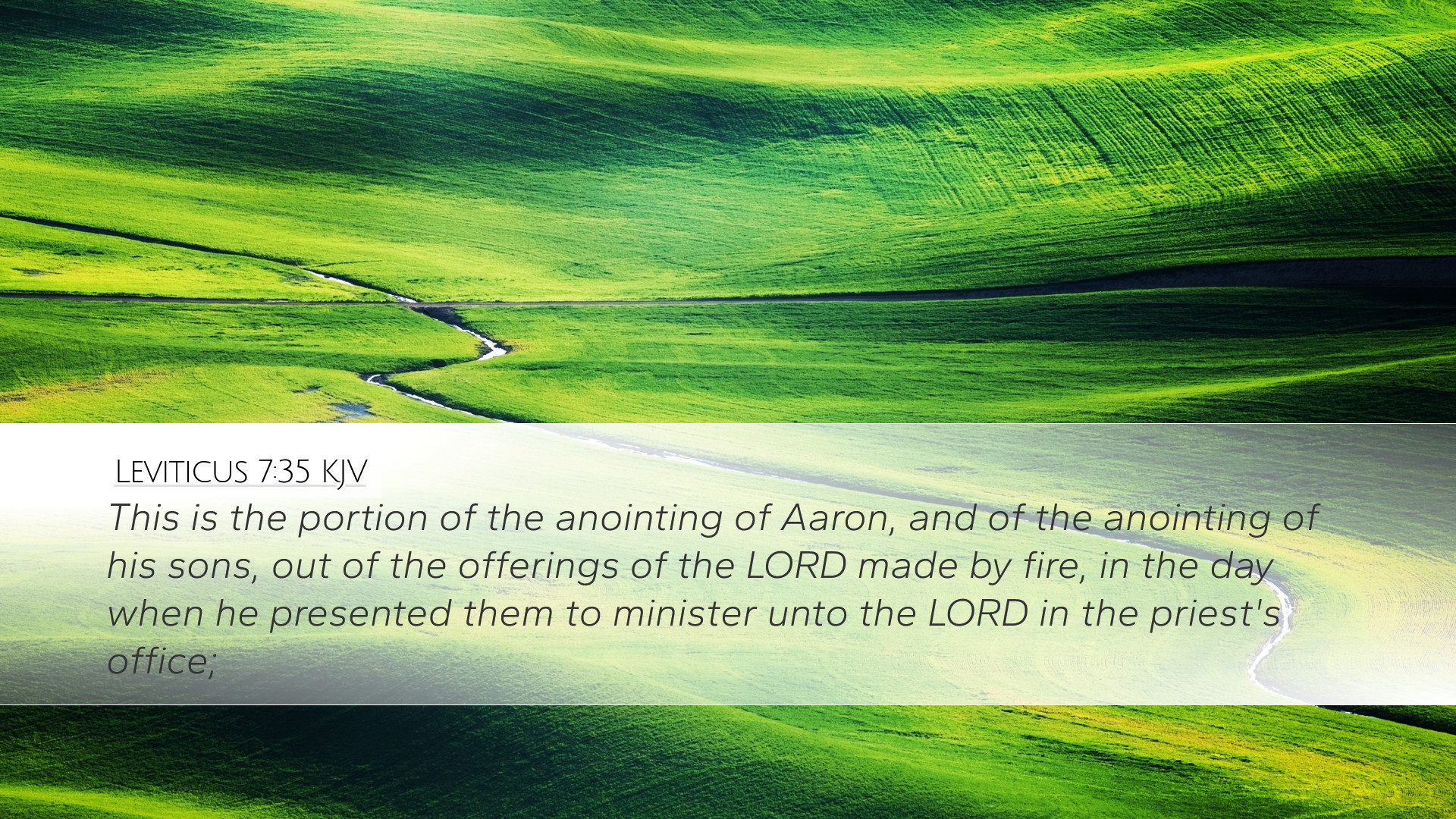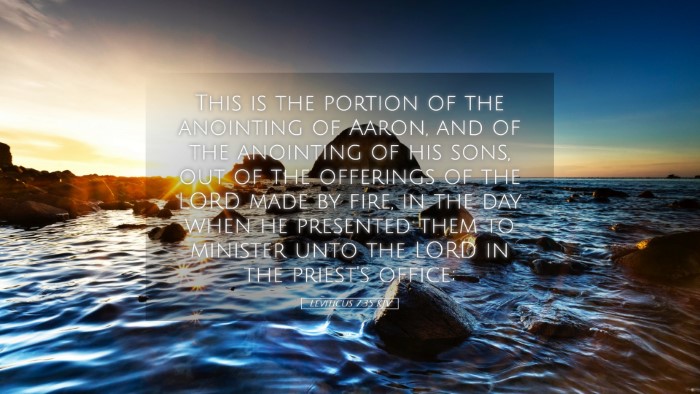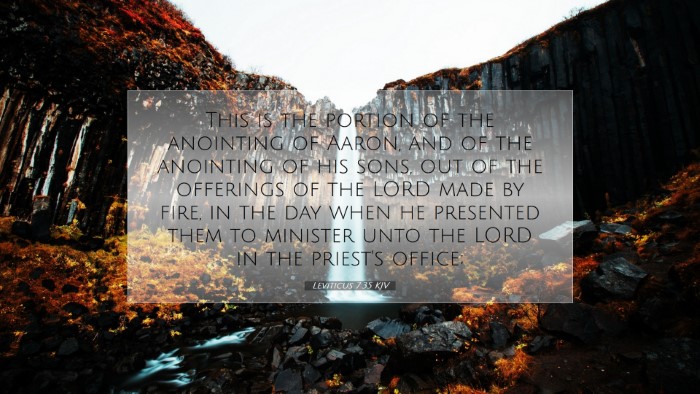Commentary on Leviticus 7:35
Verse: "This is the portion of the anointing of Aaron, and of the anointing of his sons, which was offered unto the Lord in the day when he presented them to minister unto the Lord in the priest's office." (Leviticus 7:35, KJV)
Introduction
The verse from Leviticus 7:35 serves to summarize the sacred duty of the priests and the significance of their consecration. It stands as a reminder of the divine calling laid upon Aaron and his descendants, setting in motion the distinct role that the Levitical priesthood would fulfill in the Israelite community. Through this commentary, we will explore the theological implications, historical context, and practical applications of this verse as illuminated by public domain commentaries.
Theological Insights
-
The Role of the Priests:
According to Matthew Henry, this verse underscores the elevated status of Aaron and his sons as mediators between God and man. They were not only leaders in worship but also representatives of the people before God.
-
Divine Anointing:
Albert Barnes interprets the term "anointing" as significant for denoting the setting apart of Aaron and his sons. Anointing with oil signifies the empowerment by the Holy Spirit, indicating that their role transcended mere ritual; it was infused with divine authority and purpose.
-
The Importance of Offerings:
In the view of Adam Clarke, the offerings made correspond to the acknowledgment of God's presence and blessings. This verse emphasizes that such offerings are integral for the priests as they serve, reflecting a total surrender and commitment to their sacred duties.
Historical Context
This verse is set within the broader narrative of Leviticus, which details the laws governing sacrifices and the priesthood. Matthew Henry notes that the instructions given during this period were vital in establishing a distinct identity for Israel as God's chosen nation. The Levitical priesthood played a crucial part in maintaining community holiness and providing access to God through the sacrificial system.
Practical Applications
-
Understanding Our Role:
As seen in Barnes, the concept of being anointed extends to all believers today. Just as Aaron and his sons were set apart for holy service, so too are Christians called to live out their faith actively. This model challenges believers to consider how they fulfill their roles in their communities.
-
The Significance of Servitude:
Reflecting on Clarke’s insights, there is a call for obedience and faithful service. For pastors and theologians, this verse reminds us that leadership in the church is not merely a positional authority but a call to serve sacrificially, reflecting the love and grace of God.
-
Living Sacrifices:
In light of the priestly offerings, as mentioned by Henry, believers are reminded to offer themselves as living sacrifices, holy and pleasing to God (Romans 12:1). This verse inspires both a theological understanding of worship and a practical commitment to a life of holiness.
Concluding Thoughts
Leviticus 7:35 encapsulates the essence of priestly duty and the sanctity of service unto the Lord. By intertwining the theological, historical, and practical aspects of the priestly role, this commentary aims to deepen the understanding of pastors, students, and scholars. The legacy of Aaron and his sons resonates through the ages, reminding all of God's call to holiness and service.


